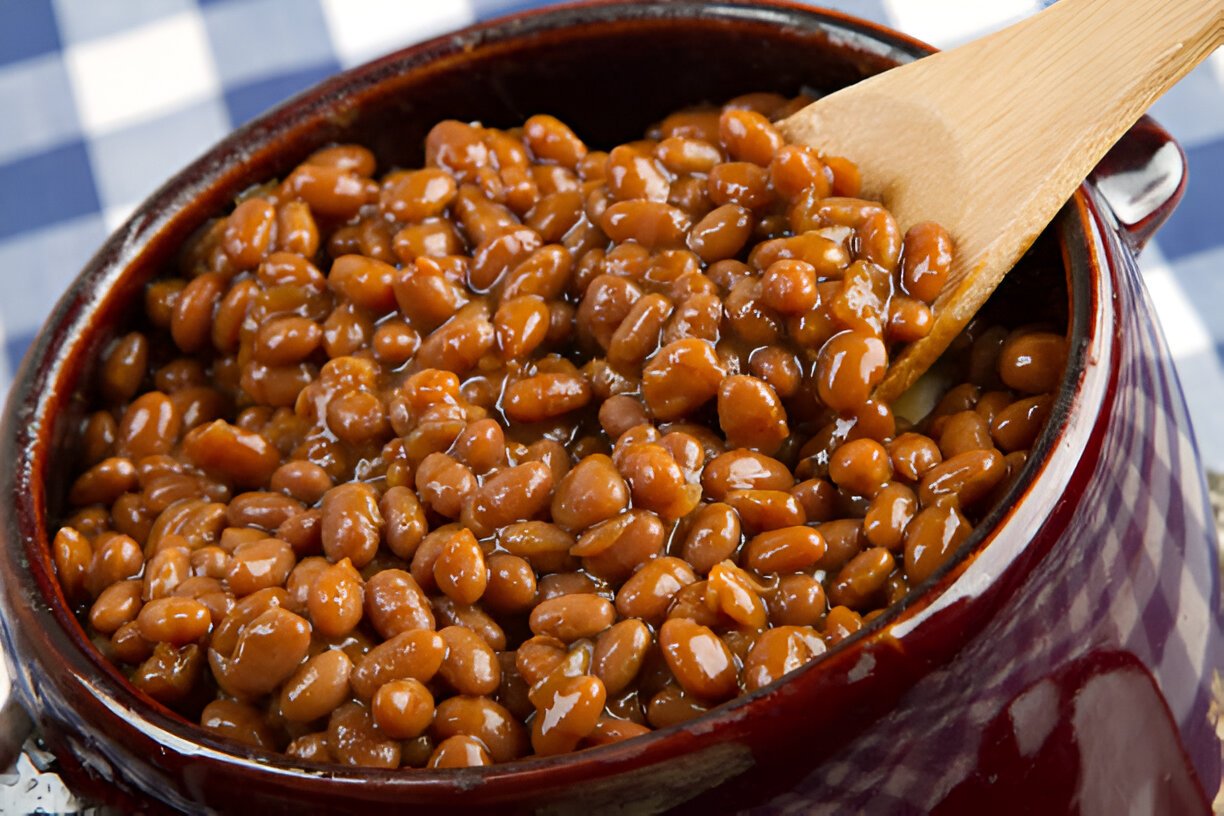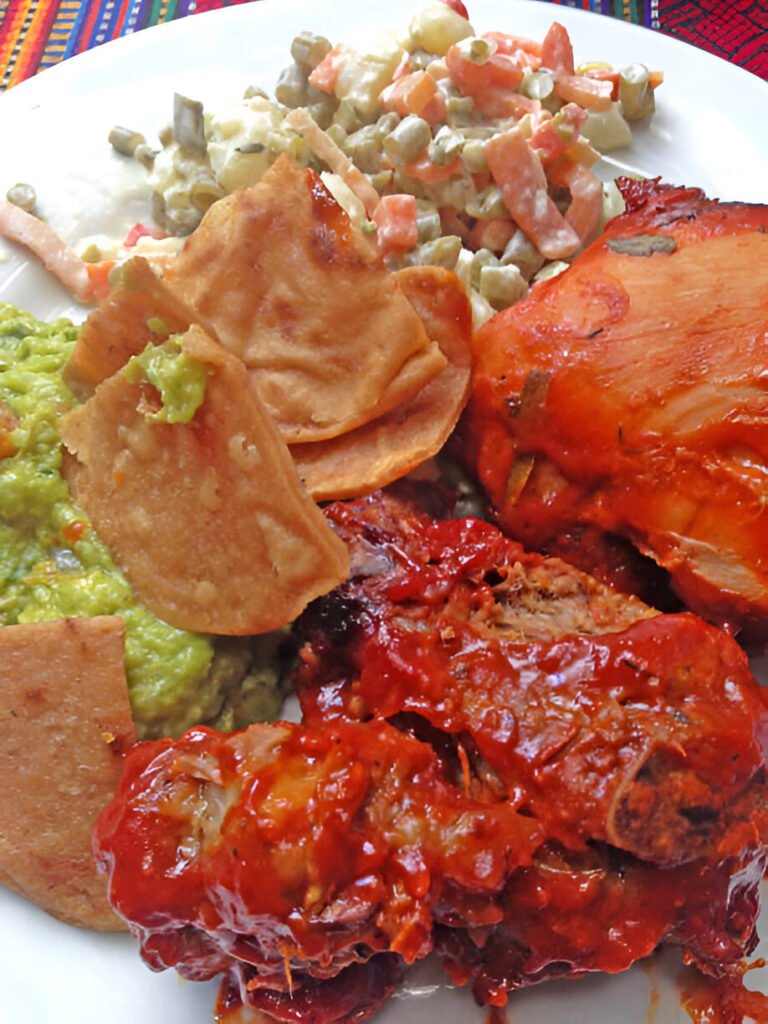Can Cooked Beans Be Left Out Overnight? Safety With Legumes

Many people often ask about how to store cooked beans safely. Beans are a popular food in many homes. Is it considered safe to keep cooked beans unrefrigerated overnight?
I’ve often wondered about this, as well, and so I conducted a kitchen experiment.
Let’s understand the dos and don’ts of storing cooked beans.
Is It Okay For Cooked Beans To Be Left Out Overnight?

Cooked beans [1] come with specific storage considerations. When omitted at room temperature, beans enter what’s known as the “danger zone” — a temperature range between 40°F and 140°F where bacteria can rapidly multiply.
If cooked beans sit in this zone for more than 2 hours, they can attract harmful bacteria. This includes Staphylococcus, Salmonella, and Bacillus cereus.
“I’ve wined and dined with kings and queens, and I’ve slept in the alley eating pork and beans.”
– Dusty Rhodes, American Professional Wrestler
Consequently, consuming beans that have sat out longer than this period can put one at risk for foodborne illnesses.
For safety and quality, store cooked beans in the fridge if you don’t eat them within 2 hours. Do not left cooked bean left out overnight for longer than necessary.
If beans are inadvertently left out beyond this time, discarding them is the safest course of action.
| Also Read: How Long Is Cooked Corn Good In The Fridge? |
Can You Freeze Cooked Beans?
Cooked beans are ideal candidates for freezing. Freezing allows you to extend their shelf life and enjoy them at a later date without compromising much on their taste or texture.
Once the cooked beans cool, place them in airtight containers or freezer bags. Leave some space for expansion.
Before using, it’s best to thaw them in the refrigerator or reheat them directly from the freezer. This method preserves the beans and retains most of their nutritional value and flavor. But how can you can green beans without using a pressure cooker?
Signs That It Has Gone Bad
- Unpleasant Odor: A robust and off-putting smell indicates that beans have spoiled. Fresh beans should have a mild, earthy aroma.
- Change in Color: If the beans take on a darker shade or show discoloration not present when cooked initially, this is a potential sign of spoilage.
- Slimy Texture: Beans that have become slimy or overly mushy, especially if they weren’t that way initially, are likely spoiled.
- Mold Growth: If you see fuzzy spots or strange colors, the beans are not safe to eat.
- Sour or Bitter Taste: If you need more clarification after visual and smell checks, a small taste can help, although it’s only sometimes recommended. A sour or bitter taste is a clear indication of spoilage.
- Visible Signs of Fermentation: Bubbling, frothing, or a swollen container (if stored in one) can indicate fermentation [2], meaning the beans have begun to spoil.
- Excess Liquid: While some liquid is regular, especially if the beans were stored in their cooking liquid, an excessive or unusual amount of liquid might suggest bacterial activity.
“Beans, like moments, are best savored fresh; leave neither lingering too long.”
– Eat Gap Restaurant & Food Advice
How To Store Cooked Beans?
- Cool Before Storing: Let the cooked beans cool to room temperature first. This helps prevent condensation and spoilage.
- Airtight Containers: Keep beans in airtight containers. This helps them stay fresh and stops them from soaking up flavors from other foods in the fridge.
- Use Within a Week: For optimal flavor and safety, consume refrigerated cooked beans within 3-5 days, though they can often last up to a week.
- Freeze for Longer Storage: For more extended storage, place cooled beans in freezer-safe bags or containers, leaving some space for expansion, and freeze them. They can last for several months in the freezer.
- Label and Date: Mark containers with the date they were stored. This helps you easily track their freshness and ensures you consume older batches first.
- Liquid Retention: If possible, store beans in their cooking liquid. This helps maintain their moisture and prevents them from becoming dry.
- Reheat Safely: When using stored beans, reheat them to at least 165°F (74°C) to ensure any harmful bacteria are killed. Always reheat beans only once.
- Avoid Cross-Contamination: Always use clean utensils to serve or handle the beans. Don’t touch them with your hands to keep bacteria away.
- Avoid Frequent Temperature Changes: Avoid moving the beans frequently between cold and hot environments, which can accelerate spoilage.
- Prioritize Consumption: If you’ve stored multiple food items, prioritize consuming cooked beans, which tend to have a shorter shelf life than many other foods.
FAQs on Cooked Beans Be Left Out Overnight
Can bean soup be left out overnight?
No, bean soup should not be left out overnight as it can promote bacterial growth, making it unsafe to consume.
How long do slow-cooked beans last in the fridge?
Slow-cooked beans typically last 3-5 days in the fridge when appropriately stored in an airtight container.
Key Takeaways
While cooked beans are a delicious and versatile ingredient, their safety can be compromised if left out overnight.
The warm room lets harmful bacteria grow. This puts anyone who eats these beans in danger.
Always put health first. Refrigerate leftovers right away. This keeps beans tasty and safe for later. Remember, it’s always better to be cautious than regretful when it comes to food safety.
References:
- https://www.foodnetwork.com/how-to/packages/food-network-essentials/how-to-cook-dried-beans
- https://www.britannica.com/science/fermentation

Kathy is a restaurateur, artist, and blogger. After spending more than 10 years in the restaurant industry, she has decided to go digital and share her expertise and experience online.






